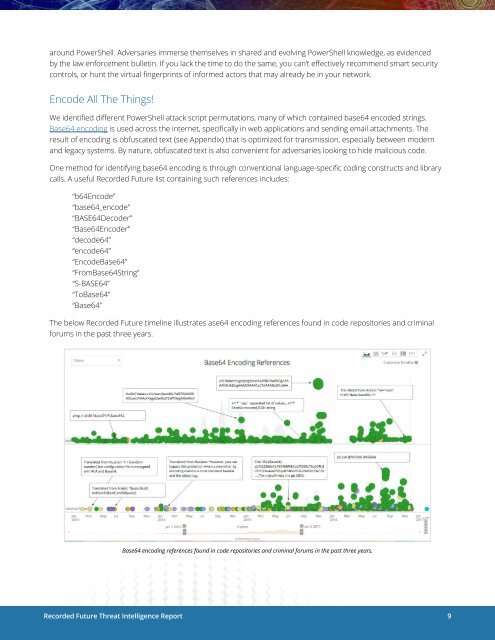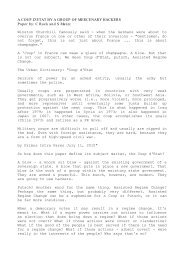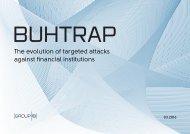A Hunting Story
rep-2016-9006
rep-2016-9006
Create successful ePaper yourself
Turn your PDF publications into a flip-book with our unique Google optimized e-Paper software.
around PowerShell. Adversaries immerse themselves in shared and evolving PowerShell knowledge, as evidenced<br />
by the law enforcement bulletin. If you lack the time to do the same, you can’t effectively recommend smart security<br />
controls, or hunt the virtual fingerprints of informed actors that may already be in your network.<br />
Encode All The Things!<br />
We identified different PowerShell attack script permutations, many of which contained base64 encoded strings.<br />
Base64 encoding is used across the internet, specifically in web applications and sending email attachments. The<br />
result of encoding is obfuscated text (see Appendix) that is optimized for transmission, especially between modern<br />
and legacy systems. By nature, obfuscated text is also convenient for adversaries looking to hide malicious code.<br />
One method for identifying base64 encoding is through conventional language-specific coding constructs and library<br />
calls. A useful Recorded Future list containing such references includes:<br />
“b64Encode”<br />
“base64_encode”<br />
“BASE64Decoder”<br />
“Base64Encoder”<br />
“decode64”<br />
“encode64”<br />
“EncodeBase64”<br />
“FromBase64String”<br />
“S-BASE64”<br />
“ToBase64”<br />
“Base64”<br />
The below Recorded Future timeline illustrates ase64 encoding references found in code repositories and criminal<br />
forums in the past three years.<br />
Base64 encoding references found in code repositories and criminal forums in the past three years.<br />
Recorded Future Threat Intelligence Report<br />
9








